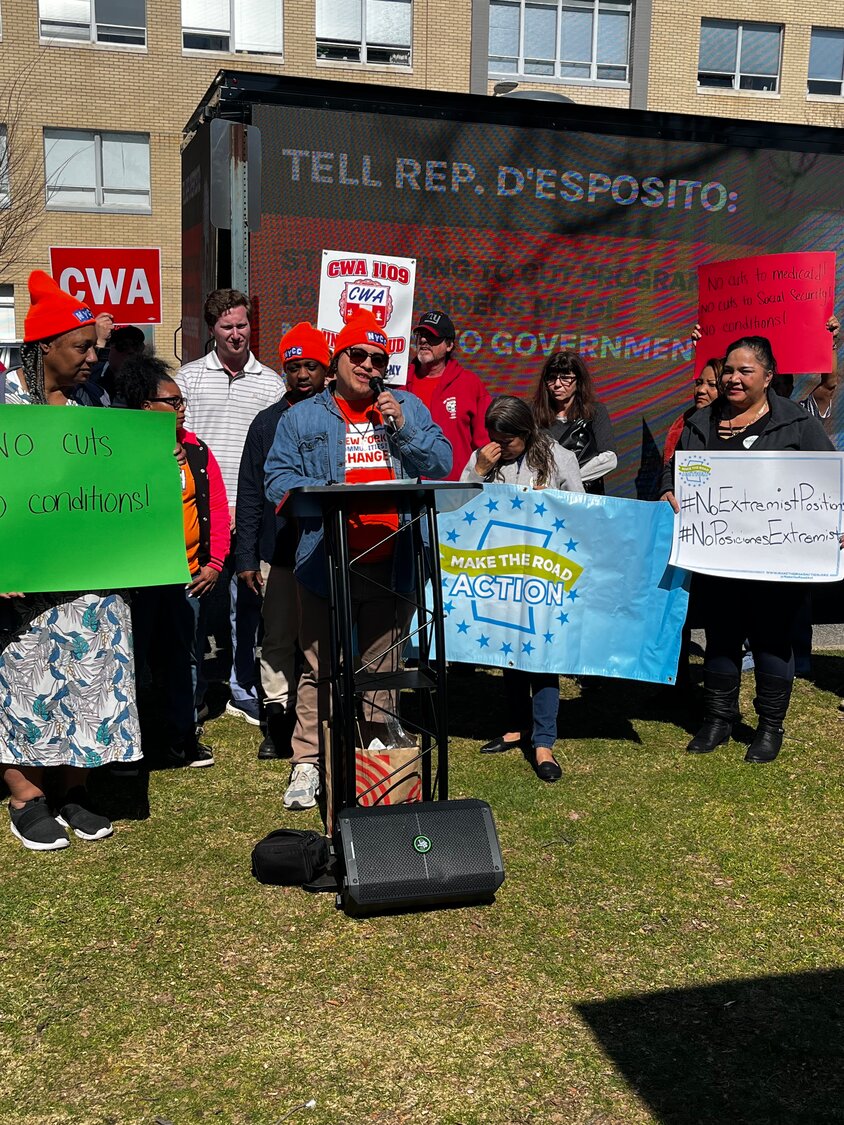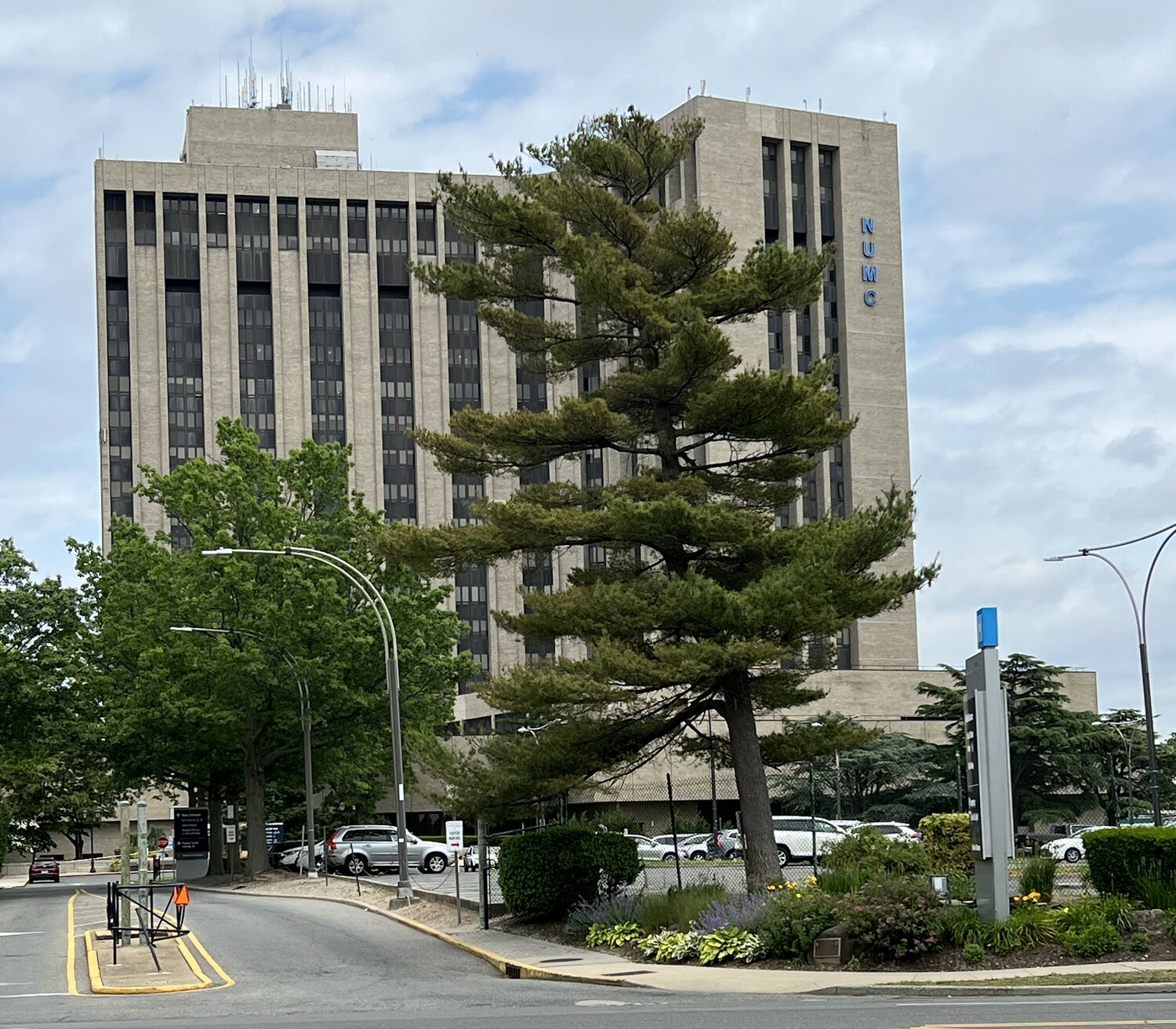NUMC closure and Medicaid cuts: Nassau's healthcare crisis
As the threat of a government shutdown loomed over the entire country this week, some residents of Nassau County said they are preparing themselves for a potential “catastrophe.”
Congress faces its third shutdown deadline of the month on March 22. Although federal lawmakers say they were able to strike a deal on Tuesday morning, much of the federal government is expected to run out of funding come Saturday morning if they don’t get this latest agreement passed before then.
But according to Empire State Voices — a grassroots organization dedicated to amplifying the voices of everyday working New Yorkers and holding members of congress accountable for their votes — a shutdown would be bad, but not as bad as a long-lasting agreement that cuts funding to major services, like Medicaid, that many in this community rely on.
Residents are already grappling with an existing crisis, the potential closure of Nassau University Medical Center by this summer — a public benefit hospital where 80 percent of all of its patients rely on Medicare or Medicaid.
But now, community members and activists are worried about the prospect of them facing an emergency situation where both the medical center closes its doors and Medicaid takes a hit in funding, making it harder for low-income residents to receive adequate, affordable healthcare services in a community like Uniondale, which does not even have an urgent care facility within its borders.
Earlier this month, congress negotiated and passed a $460 billion spending package — passing half of the 12 bills needed to fully fund the government, with funding for the department of Health and Human Services, which Medicaid falls under, still needing to be negotiated before the deadline at the end of this week.
Through the introduction of these temporary funding measures two weeks ago, congress successfully prevented a government shutdown by the March 8 deadline. These measures included the cancellation of an impending $8 billion reduction in Medicaid Disproportionate Share Hospital funding, and delayed further cuts until January 2025. Medicaid DSH funding is money from the federal government that is given to hospitals, such as NUMC, that treat a high number of low-income patients on Medicaid.
Although the canceled reduction is a win in the eyes of Empire State Voices, it doesn’t guarantee this will help NUMC’s financial situation much by July, the potential closing month, without additional state aid that is currently in limbo pending NUMC following the state’s orders — which the hospital chairman Matthew Bruderman says he will not comply with, calling the demands “extortion.”
But if the hospital were to close, County Legislator Seila Bynoe believes, “it would be a catastrophic failure to the communities who deeply rely on this public benefit health system.”
Jeannine Maynard, a resident and co-facilitator of the Greater Uniondale Area Action Coalition, agreed that the potential closure of NUMC would not only be catastrophic, but would disproportionately affect low-income residents — especially those in Uniondale, many of whom have limited access to adequate health care.
She recounted how her father, who went into cardiac arrest a few years back, was saved by fast-acting doctors at NUMC. “If any more time had passed and he had to be taken somewhere else,” Maynard said, “he wouldn’t have made it.”
With all of these worries hanging over the community’s head, last week residents and activists gathered together outside of Congressman Anthony D’Esposito’s office to demand that he does not support any proposed cuts to social security, Medicare, Medicaid, and other resources that they say are needed for Long Islanders.
Despite the congressman’s post on X, formally known as Twitter, from March of last year where he pledged to “always fight to fully fund Social Security, Medicare and Medicaid,” and to “never support cuts to these vital programs,” activists say a faction of extreme Republicans are pushing for amendments that would cut funding to these key federal programs, cuts that D’Esposito has often supported — including a previous provision that would slash nearly all government funding by 30 percent back in September.
“He can say whatever he wants, his voting record speaks for itself,” Maria Martinez, executive director of Empire State Voices told the Herald.
And she wasn’t the only one who felt this way. “His record shows that time and time again he has voted in line with extremists that are pushing for legislation that goes against the interest and well-being of our Long Island communities,” said Angel Reyes, an activist with Make the Road Action — an organization dedicated to empowering working-class Latino communities.
Residents are now calling for transparency regarding the congressman's intentions and for his assurance that he will oppose any ongoing Republican efforts to “slash funding for programs that Long Island families rely on,” from the Social Security Administration and Medicaid, to education and childcare assistance.
"Congressman D'Esposito and his team can try to deflect from the issues and malign us all they like," said Martinez, "but at the end of the day, he refuses to address the very real concerns of his constituents here on Long Island. Rep. D'Esposito has already voted in the past to cut funding for the Social Security Administration and the Centers for Medicare and Medicaid Services. I think it's fair for concerned residents to ask him to answer for those votes."
Then at the state level, residents who attended the rally expressed worries about Gov. Kathy Hochul’s proposed $1.2 billion cuts to the state’s Medicaid program in her budget, which lawmakers just rejected this week.
Leaders in Albany now want the state to rely on federal money to avoid cuts to programs that provide a lifeline to millions of New Yorkers. This means that New York, following in California’s recent footsteps, would be required to apply for a special federal waiver for the next three years, with the goal of maximizing the money that the state is reimbursed by Medicaid for programs that help residents.
But with funding and potential cuts for these federal programs up in the air, these same activists and community members are worried that their access to these resources may soon shrink.
“This is a man-made crisis,” Darinel Velasquez, an activist with New York Communities for Change, tells the Herald. “They’re focused on privatizing healthcare,” he continues, “you see places like Northwell growing and expanding, and yet the public hospital is being neglected and used as a pawn. It makes me really mad, especially with our most vulnerable New Yorkers being left behind.”
“While the partisan hacks at Empire State Voices and Make the Road Action were failing to mislead the public during their recent midday protest, Congressman D’Esposito was busy securing millions in direct federal funding for educational, infrastructure, and public safety projects across the 4th District while also working on Capitol Hill to pass bipartisan spending bills to fund the federal government,” Matt Capp, communications director for Congressman Anthony D’Esposito said in a statement to the Herald.

 44.0°,
Mostly Cloudy
44.0°,
Mostly Cloudy 







